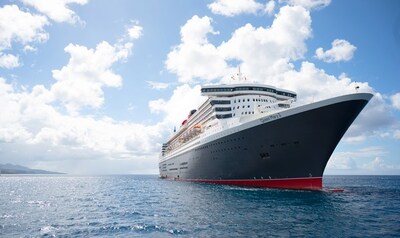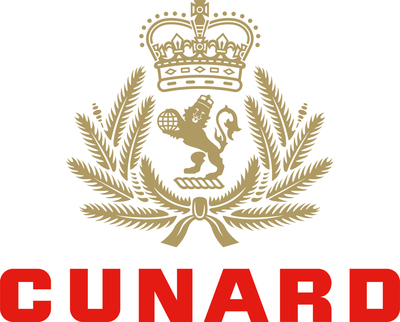Neuroscience Study Aboard Cunard's Queen Mary 2 Reveals Cognitive Benefits of Slow Travel at Sea
Rhea-AI Summary
A pioneering neuroscience study conducted aboard Cunard's Queen Mary 2 has revealed significant cognitive benefits of ocean travel. The research, involving 40 guests on a Transatlantic Crossing, demonstrated that five days at sea can increase cognitive abilities by an average of 26%. Key findings showed a 29% improvement in short-term memory recall, a 125% increase in complex problem-solving ability, and a 14% improvement in attention levels. Participants also experienced a 158% increase in perceived relaxation, with physiological stress levels decreasing by 35%. The study, conducted by Human Understanding Agency, Walnut, used biometric tools to measure cognitive and physiological changes before and after the voyage.
Positive
- Study demonstrates 26% average increase in cognitive abilities after 5 days at sea
- 125% improvement in complex problem-solving abilities
- 29% enhancement in short-term memory performance
- 158% increase in self-reported relaxation levels
- 35% reduction in physiological stress levels
Negative
- None.
News Market Reaction – CCL
On the day this news was published, CCL gained 1.16%, reflecting a mild positive market reaction.
Data tracked by StockTitan Argus on the day of publication.
- Cunard, the luxury cruise line, unveils pioneering neuroscience research conducted aboard the iconic Queen Mary 2 to explore the tangible benefits of slow travel.
- An international study involving 40 guests on a Transatlantic Crossing revealed that just five days at sea can increase cognitive abilities such as memory, spatial reasoning, logical thinking, and problem-solving on average by
26% . - Findings highlighted an impressive
29% improvement in short-term memory recall, a125% increase in complex problem-solving ability, and a14% improvement in attention levels. - Participants also experienced a
158% increase in perceived relaxation, with the number of people describing themselves as "relaxed," underscoring the rejuvenating effects of Cunard's luxury voyages.
In a first-of-its-kind neuroscience study, the results revealed that Cunard's Transatlantic Crossing, combined with their program of enriching experiences, can increase cognitive abilities by
The study, conducted by Human Understanding Agency, Walnut, involved 40 guests from around the world embarking on the iconic Transatlantic Crossing from
Key findings included:
- Memory: A
29% improvement in word recall, indicating enhanced short-term memory performance. - Problem-Solving:
125% improvement in complex logical and spatial reasoning tasks. - Attention:
14% improvement in focus during visual tasks. - Relaxation: Self-reported relaxation rose by
158% , while overall physiological stress levels decreased by35% , reflecting the relaxing influence of the voyage.
Dr Jack Lewis, a neuroscientist, commented on the findings: "What stands out for me in this study is how neatly all the pieces fit together. The passengers' time on the ship clearly reduced their stress levels based on subjective and objective measures. The main stress hormone, cortisol, is well-known in the science research literature to interfere with various cognitive processes. So, the boost in memory and logical reasoning capacity identified in this study is likely to be attributed to the stress-relieving impact of ocean travel. This, combined with the amazing array of stimulating activities onboard the world's only ocean liner, allows the passenger's brains to unlock their full potential."
Beyond the study's cognitive findings, Cunard's unique offering provides an unmatched sanctuary for relaxation and renewal. From captivating lectures by world-renowned experts as part of the Cunard Insights program to personalized wellness treatments, each element of the voyage is thoughtfully designed to foster well-being. This is all complemented by Cunard's celebrated White Star Service, ensuring every moment aboard is distinguished by personalized attention and elegance.
Katie McAlister, President of Cunard, added: "This study reinforces what we have always known - a Cunard voyage is much more than just a holiday. Our thoughtfully curated enrichment programs, bespoke wellness experiences, world-class dining, and renowned White Star Service combined with the opportunity to unwind and embrace the serenity of the ocean leave our guests feeling refreshed, inspired, and reinvigorated."
For more information about Cunard or to book a voyage, contact your Travel Advisor, call Cunard at 1-800-728-6273, or visit www.cunard.com.
For Travel Advisors interested in further information, please contact your Business Development Manager, visit OneSourceCruises.com, or call Cunard at 1-800-528-6273.
NOTES TO EDITORS
The neuroscience study was conducted by Walnut Unlimited. 40 guests traveling on the Queen Mary 2 from
Further images can be downloaded here: https://we.tl/t-2jeggkkNxP
About Cunard
Cunard is a luxury British cruise line, renowned for creating unforgettable experiences around the world. Cunard has been a leading operator of passenger ships since 1840, celebrating an incredible 184 years of operation. The Cunard experience is built on fine dining, hand-selected entertainment, and outstanding White Star service. From a partnership with a two-Michelin starred chef, to inspiring guest speakers, to world class theatre productions, every detail has been meticulously crafted to make the experience unforgettable. A pioneer in transatlantic journeys and round world voyages, destinations sailed to also include
There are currently four Cunard ships, Queen Mary 2, Queen Elizabeth, Queen Victoria and new ship, Queen Anne, entered service in May 2024. This investment is part of the company's ambitious plans for the future of Cunard globally and will be the first time since 1999 that Cunard will have four ships in simultaneous service. Cunard is based at Carnival House in
Social Media
Facebook: www.facebook.com/cunard
Twitter: www.twitter.com/cunardline
YouTube: www.youtube.com/wearecunard
Instagram: www.instagram.com/cunardline
For additional information about Cunard, contact:
Jackie Chase, Cunard, jchase@cunard.com
Cindy Adams, cindy@mgamediagroup.com
About Walnut Unlimited
Walnut Unlimited, blend scientific expertise - neuroscience, data science and behavioural science with the very best of quantitative and qualitative research to understand human decision making.
They work with some of the world's best-known brands - unlocking human understanding to drive better, human centred decisions, that will bring people closer to brands and bring about positive behaviour change.
About Dr Jack Lewis
Dr Jack is a neuroscientist dedicated to making brain science accessible. His research on sensory integration and brain function has been published in leading journals, and he's authored bestsellers like Sort Your Brain Out as well as The Science of Sin. A seasoned broadcaster, Dr Jack has hosted Secrets of the Brain and appeared on BBC, Sky, and Discovery. As a speaker and consultant, he shares neuroscience insights to inspire audiences and drive innovation across industries. Passionate about STEM, he bridges science and storytelling to engage the widest possible audience.
![]() View original content to download multimedia:https://www.prnewswire.com/news-releases/neuroscience-study-aboard-cunards-queen-mary-2-reveals-cognitive-benefits-of-slow-travel-at-sea-302315764.html
View original content to download multimedia:https://www.prnewswire.com/news-releases/neuroscience-study-aboard-cunards-queen-mary-2-reveals-cognitive-benefits-of-slow-travel-at-sea-302315764.html
SOURCE Cunard









